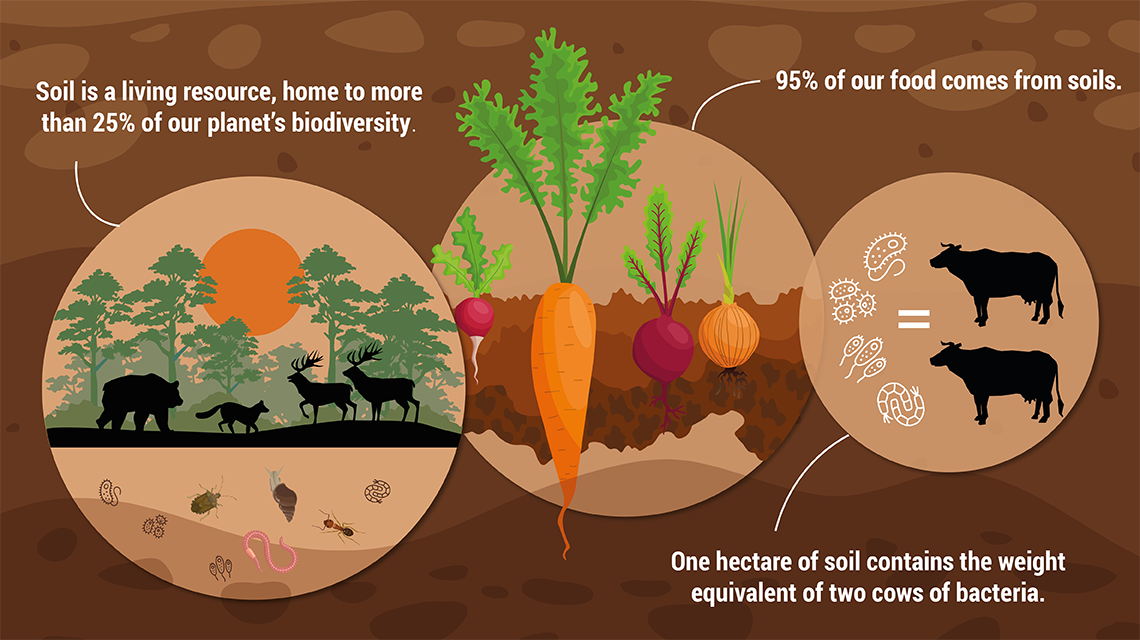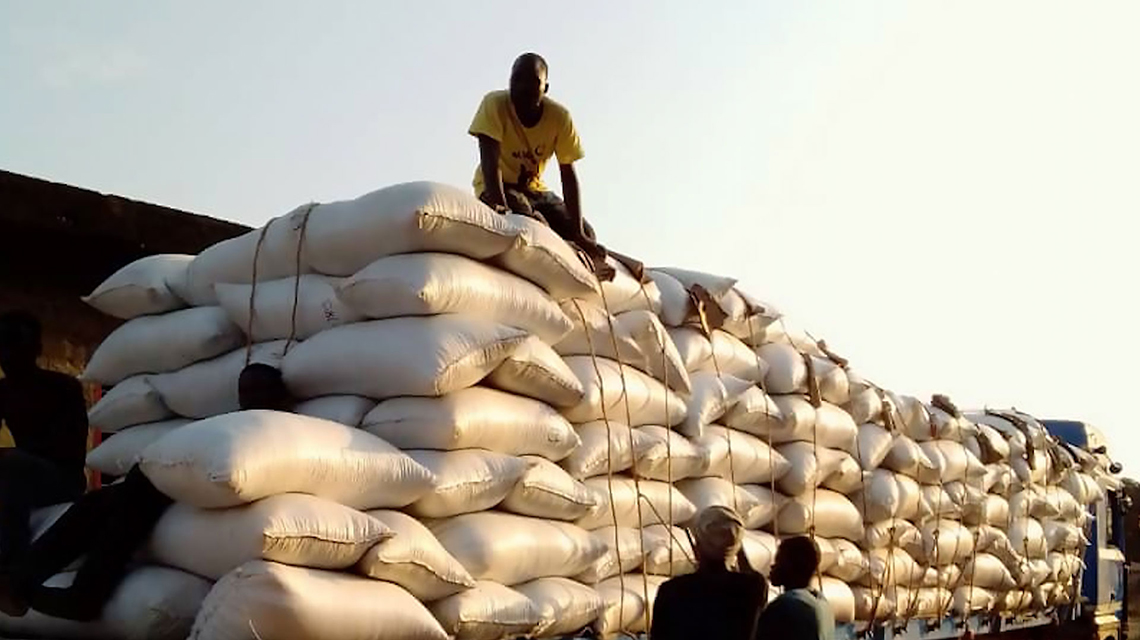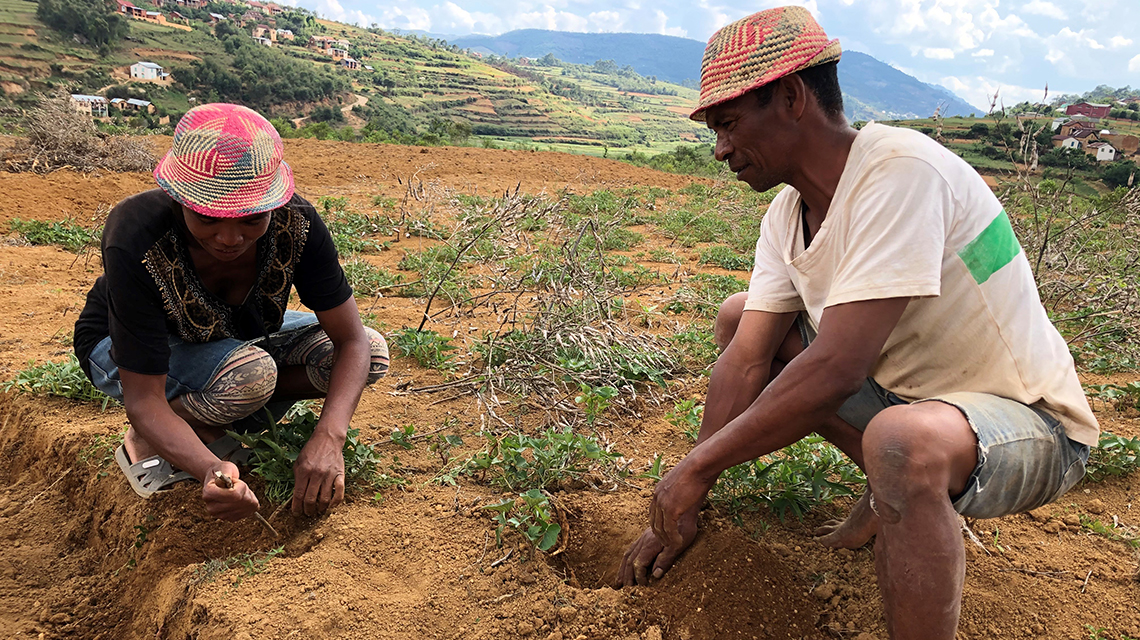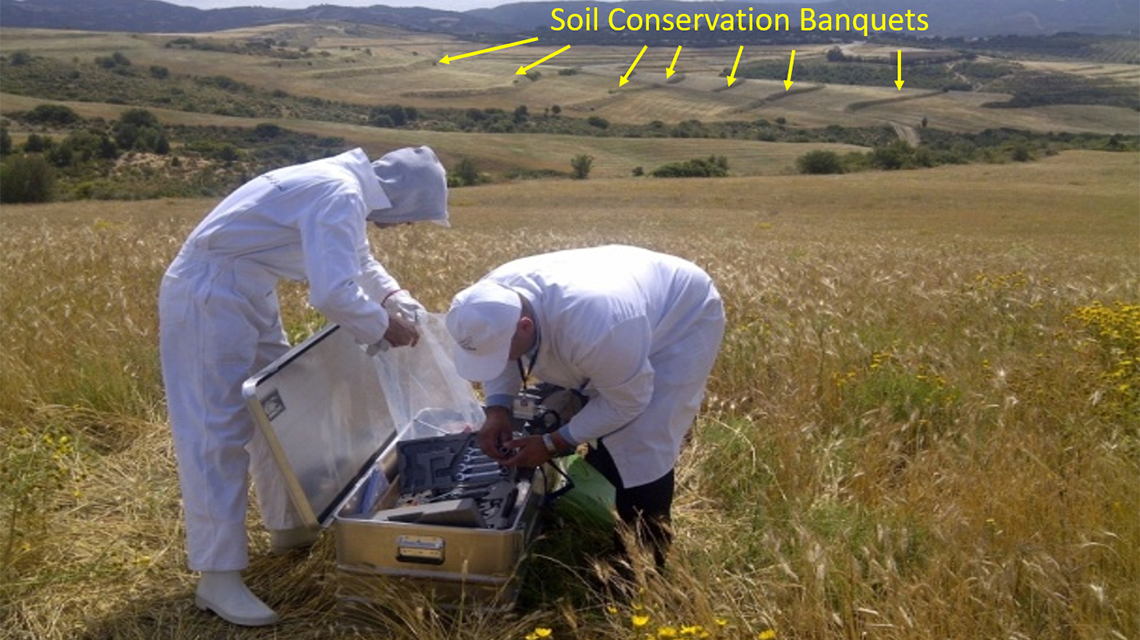Soil, the ubiquitous living resource beneath our feet, is alive with organisms that work in a coordinated effort to sustain life on Earth. These organisms help soils store carbon and reduce greenhouse gas emissions, while also providing a home for up to 90 per cent of all living organisms at some point in their lifecycles.
On this World Soil Day, the IAEA joins the Food and Agriculture Organization of the United Nations (FAO) in its campaign – Keep soil alive, Protect soil biodiversity – to highlight the importance of conserving this indispensable resource and fighting the loss of soil biodiversity.
“Soil biodiversity is vital to soil health, which ultimately affects the health of our ecosystems and livelihoods,” said Lee Heng, Head of the Soil and Water Management and Crop Nutrition Subprogramme at the Joint FAO/IAEA Programme of Nuclear Techniques in Food and Agriculture. “Healthier soils enable the efficient and increased production of higher quality foods.”
The IAEA, in collaboration with FAO, contributes annually to about 50 technical cooperation projects and leads five coordinated research projects toward improving soil management and soil health, including in drought-prone areas. “At our laboratory in Seibersdorf and with partners around the globe, we develop and validate a range of isotope and nuclear techniques to monitor the interactions of soil, water and nutrients for their efficient use,” Heng said. “Jointly with FAO, the IAEA helps countries strengthen capacities to improve soil management practices that support crop production and the preservation of natural resources.”
Since 1995, experts from more than 90 countries have benefitted from support by the IAEA and FAO in the use of nuclear techniques related to soil health and management. The stories below provide examples of the impact of this work.





